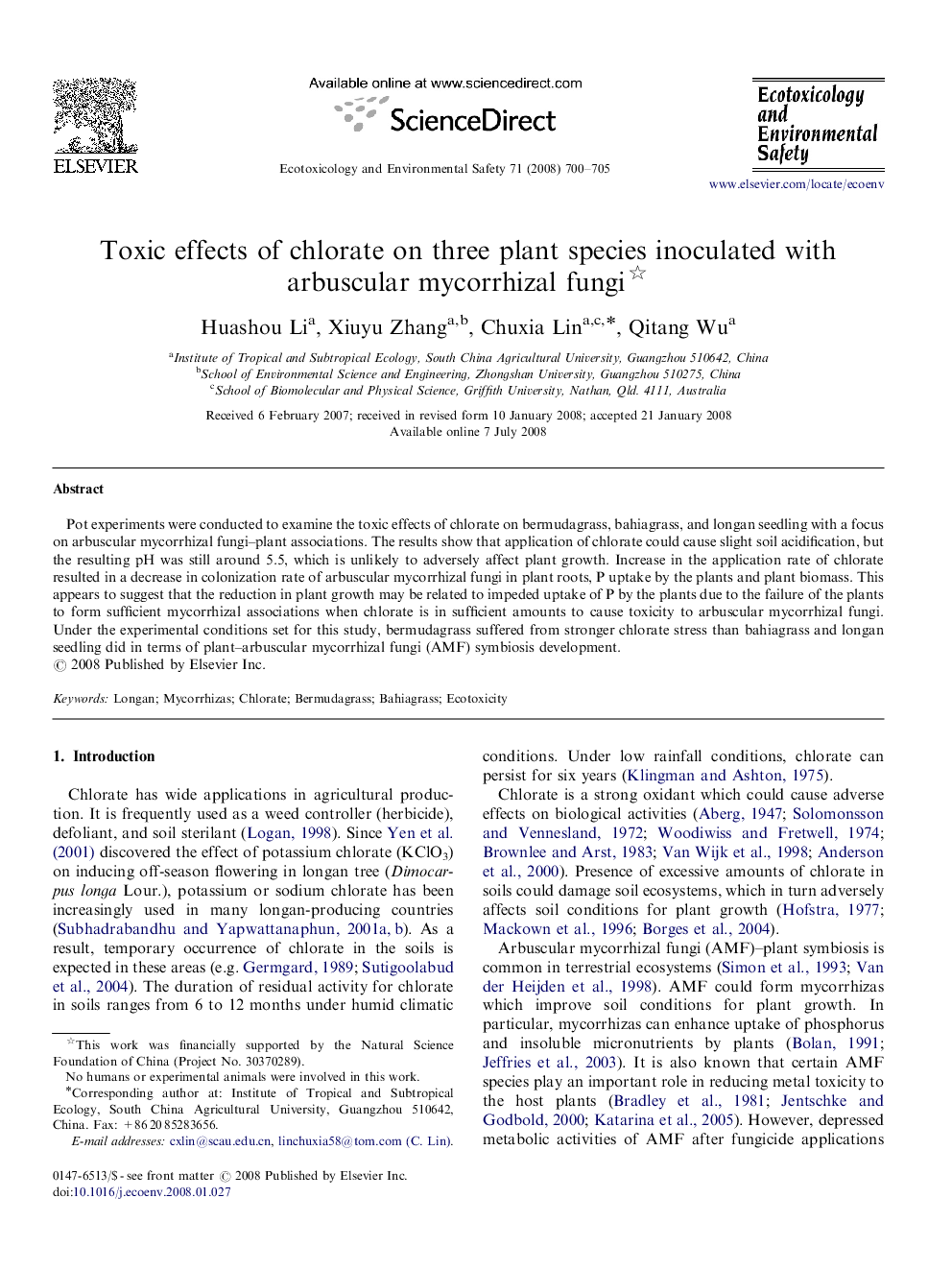| Article ID | Journal | Published Year | Pages | File Type |
|---|---|---|---|---|
| 4421804 | Ecotoxicology and Environmental Safety | 2008 | 6 Pages |
Pot experiments were conducted to examine the toxic effects of chlorate on bermudagrass, bahiagrass, and longan seedling with a focus on arbuscular mycorrhizal fungi–plant associations. The results show that application of chlorate could cause slight soil acidification, but the resulting pH was still around 5.5, which is unlikely to adversely affect plant growth. Increase in the application rate of chlorate resulted in a decrease in colonization rate of arbuscular mycorrhizal fungi in plant roots, P uptake by the plants and plant biomass. This appears to suggest that the reduction in plant growth may be related to impeded uptake of P by the plants due to the failure of the plants to form sufficient mycorrhizal associations when chlorate is in sufficient amounts to cause toxicity to arbuscular mycorrhizal fungi. Under the experimental conditions set for this study, bermudagrass suffered from stronger chlorate stress than bahiagrass and longan seedling did in terms of plant–arbuscular mycorrhizal fungi (AMF) symbiosis development.
